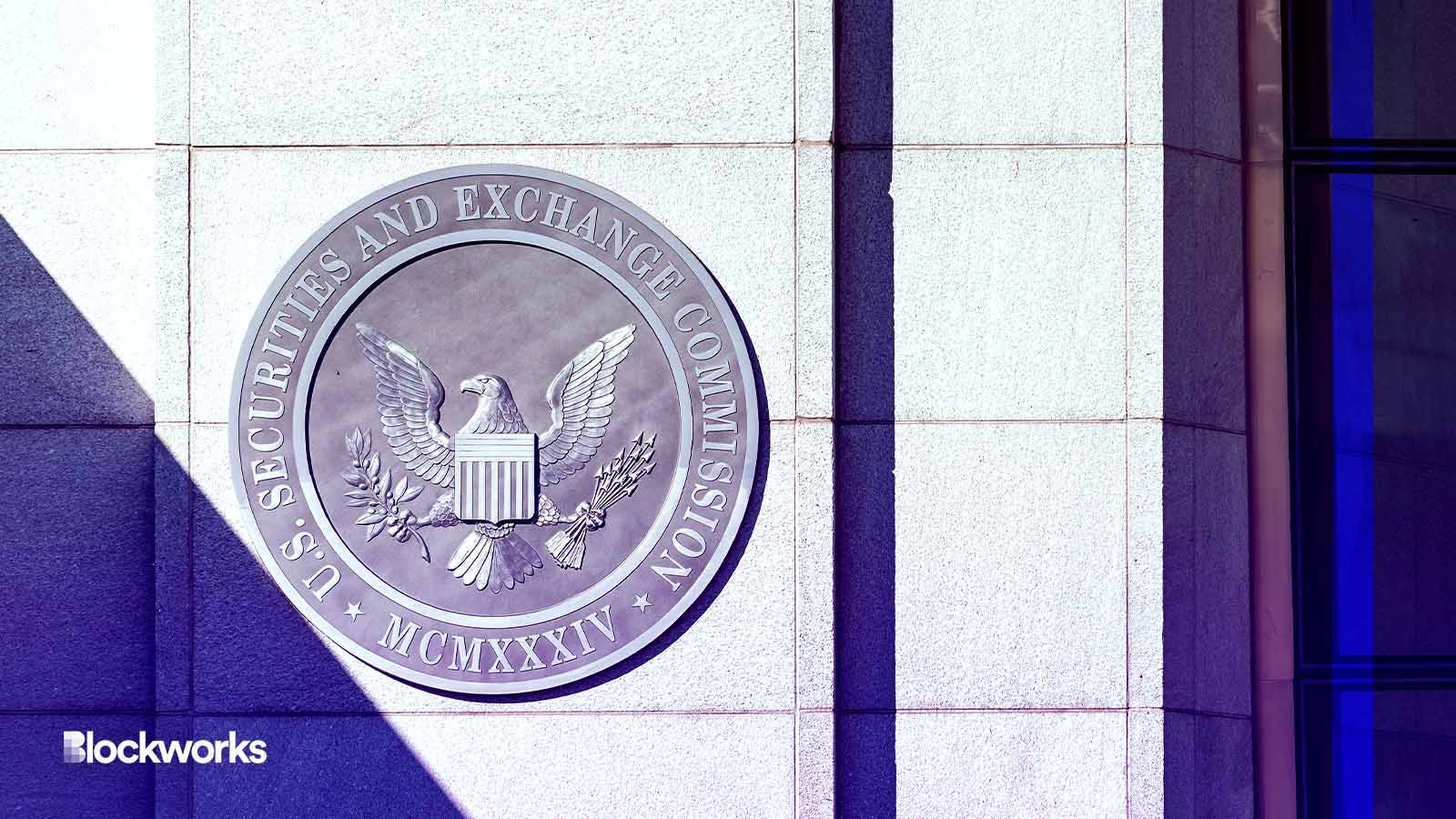SEC should ‘withdraw’ exchange definitions proposal: Paradigm
The SEC sued Coinbase for “failing to do the impossible” and register as an exchange, Paradigm added

Kristi Blokhin/Shutterstock modified by Blockworks
In a new letter to the SEC, Paradigm argues that the SEC’s approach to its exchange definition proposal has been “haphazard” and violated the “rulemaking procedures of the Administrative Procedure Act (APA).”
The SEC’s proposal would expand the definition of exchanges to cover platforms that trade crypto asset securities and some DeFi systems.
The APA guides and governs the way that government agencies both develop and issue regulations, including requirements and allowing the public to provide commentary and feedback on proposed changes.
“Accordingly, we write to request that the Commission withdraw its proposed redefinition of ‘exchange’ and begin its consideration of how to adapt its regulations in the DeFi context anew — after rigorous economic analysis, genuine, broad engagement with the industry, and a close look at the limits of its statutory jurisdiction,” Paradigm wrote.
The SEC originally announced potential changes to its exchange definition in 2022. However, it hadn’t clearly included crypto in the original changes. Instead, the SEC said it wanted to bring more alternative trading systems — which trade Treasurys — and other “government securities” under the helm of exchanges.
Then, in April, the SEC announced that it was opening another comment period for the proposed amendment changes to the exchange definition. This time, it targeted crypto and DeFi.
“The reopening release reiterated the applicability of existing rules to platforms that trade crypto asset securities, including so-called ‘DeFi’ systems, and provides supplemental information and economic analysis for systems that would be included in the new, proposed exchange definition,” the press release said.
One key argument Paradigm makes in its 14-page letter to the SEC is that decentralized exchanges or DEXs should not be included in the SEC’s exchange definition proposal.
“A DEX, particularly those using automated market maker mechanisms, involves no person or entity playing an intermediating role between buyers and sellers — instead, it uses an algorithm to balance pools of cryptoassets that potential buyers or sellers can freely access,” Paradigm wrote.
“Nor is a DEX run by any organization, association, or group capable of collective action, but rather relies on self-executing code that in many instances cannot be changed or upgraded,” it added.
If the commission proceeds to try to regulate DEXs as exchanges, then it will be forcing DEXs into “the same Hobson’s choice” as Coinbase after the SEC sued the exchange for “failing to do the impossible — registering as a securities exchange when it was incapable of doing so.”
The SEC filed a lawsuit against Coinbase earlier this week, alleging that the publicly traded company — which went public in 2021 — had been operating as an unlicensed securities exchange since 2019 and also listed and sold unregistered securities.
The SEC also filed a similar but distinct lawsuit against Binance.
In the April press release from the SEC, Chair Gary Gensler alluded to the regulator’s thinking on companies such as Coinbase and Binance.
“Make no mistake: Many crypto trading platforms already come under the current definition of an exchange and thus have an existing duty to comply with the securities laws. Investors in the crypto markets must receive the same time-tested protections that the securities laws provide in all other markets,” Gensler said.
“The Commission’s procrustean effort to regulate DEXs like traditional exchanges also, predictably, has led it to draw arbitrary and capricious distinctions amongst quickly developing technologies. The changes it has made to the regulatory definition of “exchange” involve replacing traditional and understood terms with novel, vague, and ambiguous ones — with the result that the newfound definition of ‘exchange’ is so far-reaching that it would facially encompass entities that are plainly nothing like exchanges,” Paradigm said.
The comment period on the proposed changes ends on June 13.
Get the news in your inbox. Explore Blockworks newsletters:
- The Breakdown: Decoding crypto and the markets. Daily.
- 0xResearch: Alpha in your inbox. Think like an analyst.






